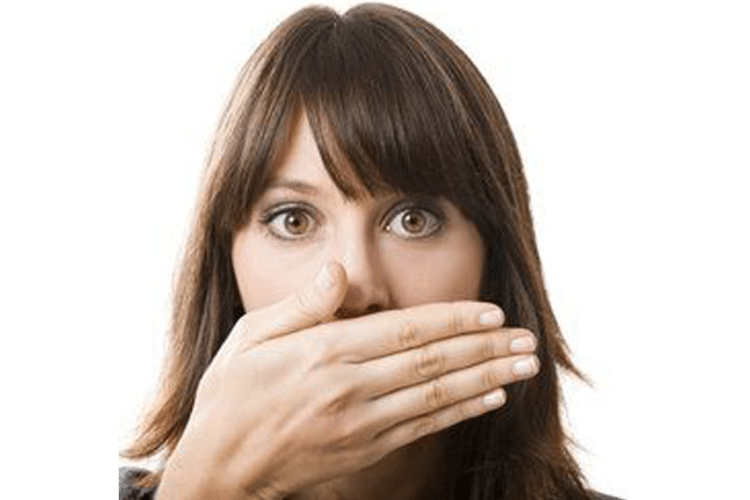
Bad breath plagues thousands of people, but you don’t have to be one of them! Fortunately, cosmetic dentists Jay C. Hazen and Chris Tamsen offer many treatment options to help combat bad breath. Treatment with Drs. Hazen and Karls begins with a thorough dental examination to determine a personalized treatment plan. We welcome you to schedule a consultation with Drs. Hazen or Karls discuss your treatment options. In the meantime, read on to learn about options for treating bad breath and what you can do to help end this common condition.
The Causes of Bad Breath
The first step in ending bad breath is determining the source. Besides the foods we eat, there are many other causes of bad breath. Many times bad breath is a sign of a more serious dental condition like oral infection or other dental problems.
Foods and drinks with strong odors can be a major source for bad breath. Breath mints and minty gums can help mask the odors, but the smell will not be completely gone until the food culprit is fully digested. People who eat garlic or onions with every meal will have a hard time getting rid of bad breath since these are strongly scented foods. Some foods and drinks that can cause bad breath include:
- Onions
- Garlic
- Coffee
In some circumstances, bad breath is an indication of something more serious. Bad breath is often a sign of gum disease, which is an infection of the gum tissue. If left untreated, gum disease may lead to tooth and bone loss. Dental cavities can also cause bad breath and can be treated with tooth-colored fillings for a flawless finish. Other conditions that may cause bad breath include:
- Smoking
- Dry mouth
- Acid reflux
- Diabetes
- Respiratory tract infections like pneumonia or bronchitis
- Yeast infections of the mouth
Treating Bad Breath
Because bad breath may stem from a number of causes, properly treating bad breath begins with a thorough dental examination. Bad breath caused by gum disease or other dental issue will persist until treated by a dentist. In the meantime, here are some tips to help reduce bad breath:
- Avoid foods with strong odors: Smelly odors from certain foods, like onions and garlic, tend to linger long after your meal. Avoiding smelly foods can help reduce the symptoms of bad breath.
- Drink lots of water: Dry mouth can cause bad breath since the body doesn’t produce enough saliva to wash away foods and bacteria. Drinking plenty of water helps reduce bacteria and food particles in the mouth and reduce bad breath.
- Practice proper oral hygiene: Brushing at least twice a day and flossing once a day is vital to maintaining fresh breath. Brushing and flossing help keep the teeth free of bacteria and food remnants, and reduce the chance of the development of gum disease and other oral infections.
- Brush your tongue: The tongue can attract malodorous food particles, so be sure to brush your tongue along with your teeth!
- Chew sugar-free mint gum after meals: Though brushing after meals is preferable, it is not always feasible. Chewing sugar-free mint gum after meals can help reduce plaque and mask the garlic chicken you ate for lunch.
For more information on how you can end bad breath or to schedule a consultation, we welcome you to contact Dentistry for Madison today!
